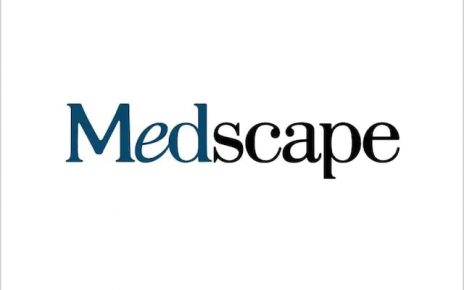When I was diagnosed with breast cancer in 2014, I knew nothing. I was the Jon Snow of boobs. (Somewhere Kit Harington is wincing). But after one lumpectomy, four biopsies, countless mammograms, ultrasounds and MRIs, I learned fast and furiously. Now, five years after my diagnosis, I sat down with Dr. Lisa Newman, breast surgeon and researcher, for an episode of “Wine + Gyn” in honor of Breast Cancer Awareness month. Except, we ditched the wine. (You’ll find out why later). So here’s what I learned the last few years — get ready for the breast knowledge you didn’t know you need.
1. There is a link between alcohol and breast cancer.
Crap. I know, does this mean we can’t or shouldn’t drink at all? Dr. Newman said everything in moderation is OK. You might be thinking, “Wait, doesn’t red wine help your heart?!” Maybe. But it’s not good for your breasts. Dr. Newman recommends keeping your alcohol intake to a minimum.
2. Genes matter.
My aunt, my cousin, my mother and I all have had breast cancer. We must have that breast cancer gene right? Nope. We are not carriers of the BRCA gene mutation that makes people more likely to develop breast cancer. In the U.S., about 1 in 400 people have the BRCA1/2 mutation, according to Susan G. Komen. But this doesn’t mean there isn’t a gene link. New genes are being discovered every day.
3. You may need a screening earlier than you think.
I got my first mammogram when I was 35. The recommended age to get your first mammogram is 40. If you have a family history, you should get your first screening 5 to 10 years earlier than the first person diagnosed in your family. For example, I got diagnosed at 35, so if I had a daughter, she should get screened at 25. (Sorry, kid!) Also, get this: girls who get their periods before the age of 12 have a 20 percent higher risk of getting breast cancer, according to Know Your Girls, than girls who get their periods after age 14! Cue dramatic music (dum dum da dum) — I was 11 when I got mine.
4. Getting a mammogram isn’t super comfortable, but neither is cancer.
Seriously though, it’s seven seconds of squeezing (multiple times) and right when you think they can’t possible squeeze more, they do. Seven seconds is a made-up statistic. It might be three seconds, but it feels like seven. But it’s so important to get screened. Catching this stuff early is key. Dr. Newman shared that women in the African-American community are dying from breast cancer at a disproportionately high rate — 40 percent higher — compared to white women. They are also more likely to be diagnosed with Triple Negative breast cancer, one of the most aggressive and fastest-growing types of cancers.

5. Younger breasts are dense.
That doesn’t mean your breasts are unintelligent. It means the tissue is super dense making it hard to spot abnormalities. Dr. Newman also shared that as you get older, the tissue becomes more fatty. The denser your breasts, the more testing you may need.
6. Form a mamm mob.
Girls who get mammed together…have more fun? I went to my first mammogram on my own. It was no big deal. But then they saw something and ultrasounds, MRIs and biopsies followed. When I began having multiple biopsies, my friends joined me to keep me company. It made it like a fun outing, where one of us got to go in a room and be topless and get her boob poked with a needle. And the other sat in the waiting room with her top on. See? Fun.
7. Men can get breast cancer too.
Beyoncé and Solange Knowles’s dad just recently spoke out about his breast cancer. With my family history, Dr. Newman recommended that the men in my family get screened. Can men get mammed? Turns out they can. Ow. Sorry bros. Over all, getting breast cancer is much less likely for men than women. The lifetime risk of getting breast cancer is about 1 in 833 in U.S. men compared to 1 in 8 for U.S. women, according to Susan G. Komen.
8. Lean on your breast friends forever.
If you’re diagnosed, bring someone to every appointment to take notes. After you hear the word “cancer,” you don’t hear much else. Plus it’s a great way to make your friends and family be your administrative assistants without paying them.
9. Don’t panic.
If you find out all is not OK with your boobs, remember: Breast cancer is one of the most treatable cancers out there. The improvements made in the last 30 years alone are amazing. Doctors are great and know a lot of stuff, they went to school for a really long time. And healthcare providers can work with you to understand your treatment options. They have one job — they’re there to help you. (And always make sure to get a second opinion. You have two breasts, you deserve two opinions.)
10. Get informed.
Beyond your healthcare providers, there are plenty of great online resources to help answer your breast cancer questions — think of them as CliffsNotes for your breasts. (Does anyone use CliffsNotes anymore?! Am I 98?!) We highly recommend you check out KnowYourGirls.com, created by Susan G. Komen & Ad Council to encourage people to have conversations about breast cancer, rather than staying silent.
So go forth and talk about your breasts, learn the facts so you can wow people with your breast knowledge, and remind your friends and enemies to get screened. Your breasts will thank you.
Source: Read Full Article



